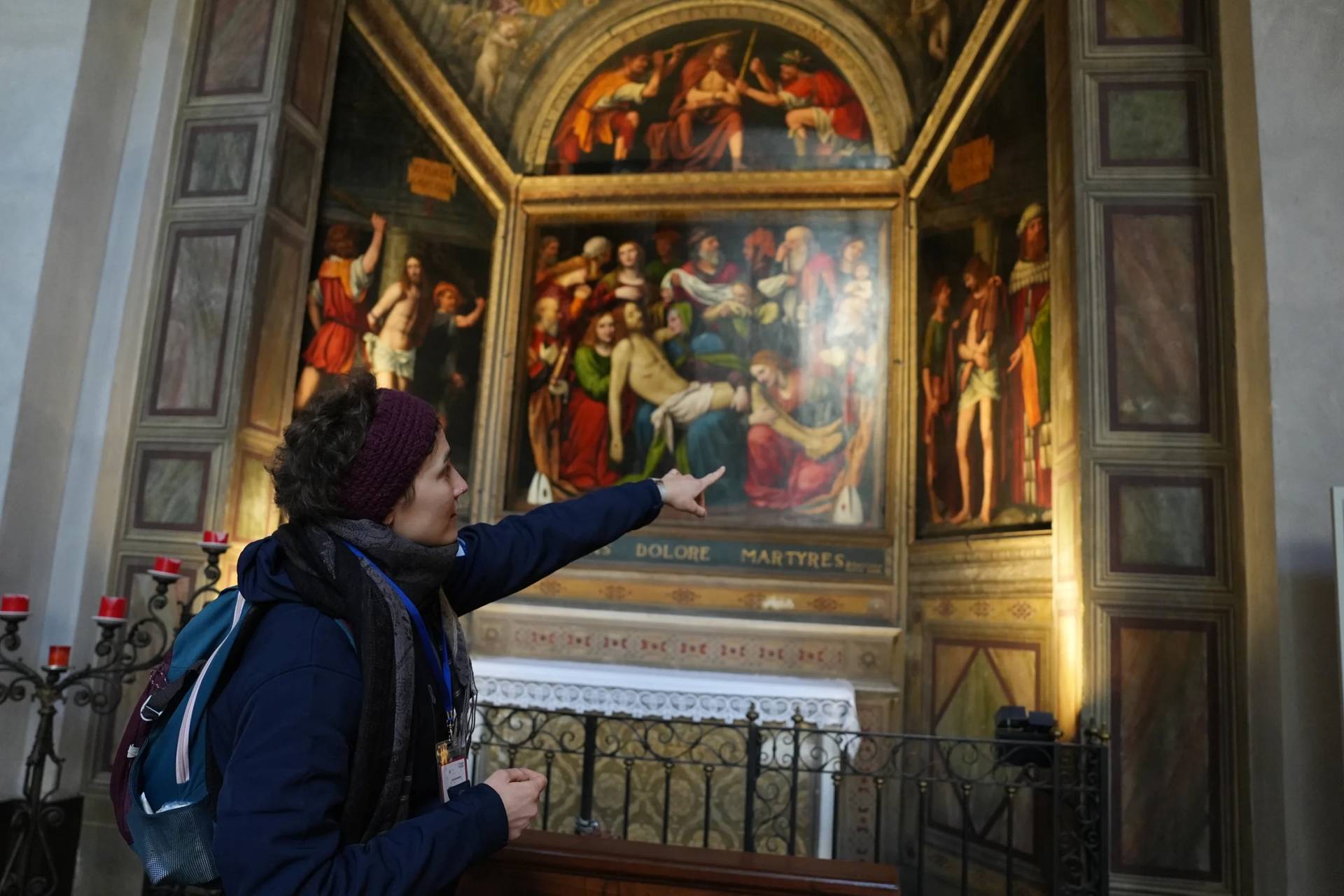ROME – A recent survey found a significant difference in religious practices between Western and Eastern European countries, including the irony that countries of the former Soviet bloc, where atheism was the official creed for 70 years, today generally have a stronger belief in God and appetite for religious practice than in the secular West.
In Central and Eastern European countries, especially Georgia, Armenia, Moldova and Romania, a substantial majority of citizens believe in God, whereas the Western side of Europe seems to consider religion less important, are less devout and have a growing population of “nones,” meaning people with no religious association, especially in the Netherlands, Belgium and Sweden.
A late October Pew Research Center survey found that in Western Europe, only about three in ten people claim to be absolutely certain that God exists. This is flipped on the other side of the Old Continent, where belief in God is firmer. In Romania, 64 percent of people are certain of the existence of God, 59 percent in Greece and 57 percent in Croatia.
It’s well known that religious belief in Western countries has been declining, as secularism, confidence in science as an alternative to religion and individualism all mount, but the recent survey offers statistical confirmation.
Despite a majority of people being raised Christian in Europe, many lose their faith along the way. For example, in Belgium while 83 percent of people are said to have been raised Catholic, only 55 percent still identify as Christian.
Once again the situation is flipped in Central and Eastern countries, where the fall of the Soviet Union in 1991 rekindled religious affiliation and, in certain cases, grew the ranks of the Christian faithful.
In Ukraine, 81 percent of people were raised Christian, but the survey found that 93 percent of the population now identifies as Christian, with the same pattern being found also in Russia, Belarus and Armenia.
Though Europeans don’t score very high on the religious behaviors meter, there remains a significant difference between Eastern and Western religious practice.
Eastern Europeans are more likely to attend religious service at least one a month or to pray daily. Half or more of adults in Greece, Bosnia, Armenia, Georgia and Romania stated that religion is important in their lives, but only one-in-ten in Western European countries said the same.
While only 8 percent of Austrians or Swiss claim to pray daily, the study found, about 33 percent of people living in Slovakia, Greece or Ukraine do. Over 60 percent of people in Denmark say they never pray, but only 28 percent say the same in Russia.
The study also attempted to trace a line between religious affiliation and national identity, finding that for most Eastern European countries being Catholic or Orthodox weighed significantly on their national identity. In France or England, the study found, being Christian is largely not considered essential for being French or English.
The Baltic states of Latvia, Estonia and Lithuania – recently visited by Pope Francis – make a small exception to the findings since many of its citizens do not consider religion important in terms of national identity. But the study also noted that a majority in those countries would be less inclined to have a Jewish or Muslim neighbor.
Apart from the differences separating the Eastern and Western parts of Europe, both are united in the belief that the Church and the state should be separate. Still, in seven Central and Eastern European countries that distinction is more blurred, with the majority of Armenians and Georgians believing that the government should support religious beliefs. In Russia, 42 percent of citizens stated that the government should promote religion.
In Italy, the pope’s own backyard, the survey found that Italians rate low on religious belief, but relatively high on attending religious services — confirming the widely held perception that for many Italians, faith is more about culture and tradition than about personal conviction.













